Exercising reduces pain, promotes healing and provides lifelong benefits.
It seems like such a simple concept. You work out; you feel better. If that is so easy to understand, then why is it so difficult for most of us to execute? When we are feeling lousy, why don’t we want to get out and move more?
The American Heart Association noted that regular exercise prevents obesity, high blood pressure and poor cholesterol levels, all which lead to heart attack and stroke. The U.S. Department of Health and Human Services found that people who worked out between 30 and 60 minutes three to five times a week got significant mental benefits. University Health News stated that exercise actually alters the bacterial composition of the digestive system, helping to prevent disease and maintain good health.
And it doesn’t stop there. The American Lung Association actually suggested that exercise would help people suffering with chronic obstructive pulmonary disease (COPD), pointing out that the right amount of activity can improve the use of oxygen, energy levels, anxiety, sleep and shortness of breath.
Exercising is not just for managing weight. Simple concept, right?
CORA Physical Therapy’s Clinic Manager in Powdersville, Benjamin Cuenin, said, “Well, you would think so, but I talk endlessly with patients about the benefits of regular exercise. It doesn’t have to be complicated. You just need to live an active lifestyle. Exercise can be achieved in a variety of ways.”
Cuenin said that people experiencing chronic pain can benefit greatly from regular exercise.
“Moving the body will bring oxygen to the tissues, which will aid in the healing process,” he said. “If you aren’t moving, the tissue will not receive the oxygen it needs to heal, and the patient will continue to experience pain long after the injury occurred.”
He said that physical therapy can help people figure out what kind of exercises to do.
“Just because you can’t move a limb, for example, doesn’t mean there aren’t still exercises that you could be doing,” he explained. “Many people just need to understand the physiology of the body, and that is what we are here to help with.”
He advised that moving the injured limb is actually what people should be doing – when appropriate – not becoming completely immobile in order for it to heal.
“That is what most people think,” he said. “They think they injured a part of the body so they should prop it up and try not to move it much. It is vital to promote mobility.”
Of course, he warned, there will be modifications and restrictions.
“With the help of a licensed or board-certified physical therapist, healing can occur much faster,” he said.
He implores people to look at their options before they rely on pain medication.
“As a society, we overprescribe and get too many surgeries. I would advise people to be proactive with their health care and to explore and educate themselves on the different options out there for reducing pain and promoting healing. Exercising will provide lifelong benefits, while pain pills are a temporary fix.”
For more information, please visit www.coraphysicaltherapy.com or call our Powdersville, SC location at 864-210-9625.
Article as originally published by Theresa Stratford on www.UpstatePhysiciansSC.com.
